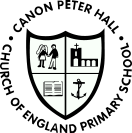In planning our Music provision, careful consideration has been given to the social and economic context of our school. We know, and don’t shy away from, our responsibility to provide enriching cultural and artistic experiences. Children will experience the process of preparing for a performance: rehearsing, making decisions about content and presentation, conquering nerves, experiencing the confidence that success can bring. Music at Canon Peter Hall encapsulates the broader life skills of achieving excellence through preparation, something that can be applied in situations later in life such as job interviews, reflecting our school’s commitment to linking with The World of Work. We intend that all pupils will experience a variety of performance occasions both in and out of school. These will range from informal, low-stakes sharing of work with their peers, to more formal presentations to parents and invited guests. It is also our intention that children will have the opportunity to perform at other venues in conjunction with partners such as the Music Hub, Humber Taiko, local businesses and community organisations.
The profile of music within our school is the most obvious impact of our programme. Our enthusiasm and passion for music is reflected in our joyous whole-school singing and our regular celebratory performances. The children at Canon Peter Hall talk enthusiastically about their musical experiences within the school, with a number of them choosing to further their interests by participating in groups both in and out of school. We work with community partners such as One Voice Immingham and North East Lincolnshire Music Hub to signpost children to additional opportunities.
Children at Canon Peter Hall are able to enjoy music in whichever way they choose – as performer, listener, composer, or academic – and are able to discuss music, using appropriate terminology to demonstrate comprehension of its core elements.

